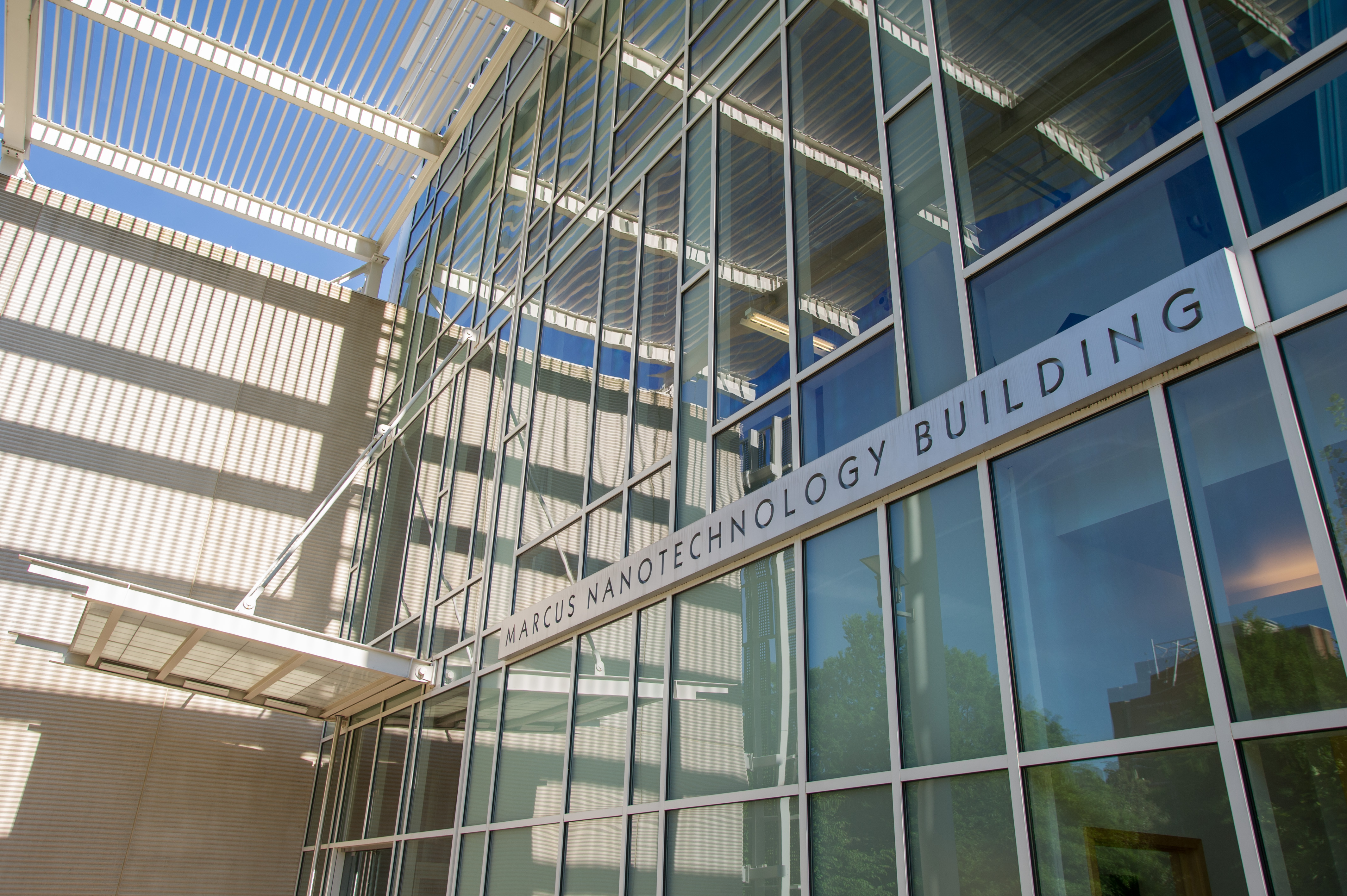
The Institute for Electronics and Nanotechnology (IEN) at Georgia Tech was established as an Interdisciplinary Research Institute (IRI) at Georgia Tech under the executive vice president for research with the goals of supporting and connecting those doing basic and applied research in the areas of electronics and nanotechnology, enabling collaboration and interdisciplinary teaming across academic disciplines, and assisting in moving research results into real-world use. In support of these goals, IEN’s vision is to enable research, development and deployment of nanotechnology and nanoscience solutions to challenges of global significance.
More than 200 world-class faculty at Georgia Tech perform research in the areas of electronics and nanotechnology with expertise spanning from fundamental physics and materials science to complete systems and their applications, including: nanomaterials and structures; compound and next-generation semiconductors; processing and device fabrication; integrated electronics & photonics design; optoelectronic & photonic devices and systems; MEMS, NEMS, and sensors; bio-interfaces, biomedical devices and systems; high-speed electronics and wireless systems; system integration and packaging; and energy harvesting & storage. Nine active research centers and programs associated with IEN offer targeted and complementary research programs in the area of micro/nano-enabled electronics/photonics and welcome faculty and industry participation.
To enable state-of-the-art electronics and nanotechnology research, IEN maintains extensive micro/nanofabrication and materials characterization core facilities that are used by more than 1,000 users on an annual base. As a partner of the Southeastern Nanotechnology Infrastructure Corridor (SENIC), one of the sites in the NSF-funded National Nanotechnology Coordinated Infrastructure (NNCI), our core facilities and associated staff expertise are open to external users from academia, industry and government labs. Last year, we have welcomed some 150 external users representing more than 20 universities and more than 40 companies in our core facilities. Building on these core facilities and our faculty and staff expertise, we support a variety of educational and professional development programs including undergraduate and graduate-level laboratory courses, hands-on short courses, workshops, seminars, as well as K-12 events.
MISSION
IEN facilitates innovation in micro/nano-enabled technology by catalyzing and translating research, connecting Georgia Tech researchers, companies, & government agencies, and preparing the workforce of the future.
VISION
The Institute for Electronics and Nanotechnology enables Georgia Tech research, development, and deployment of nanotechnology and nanoscience solutions to challenges of global significance.





